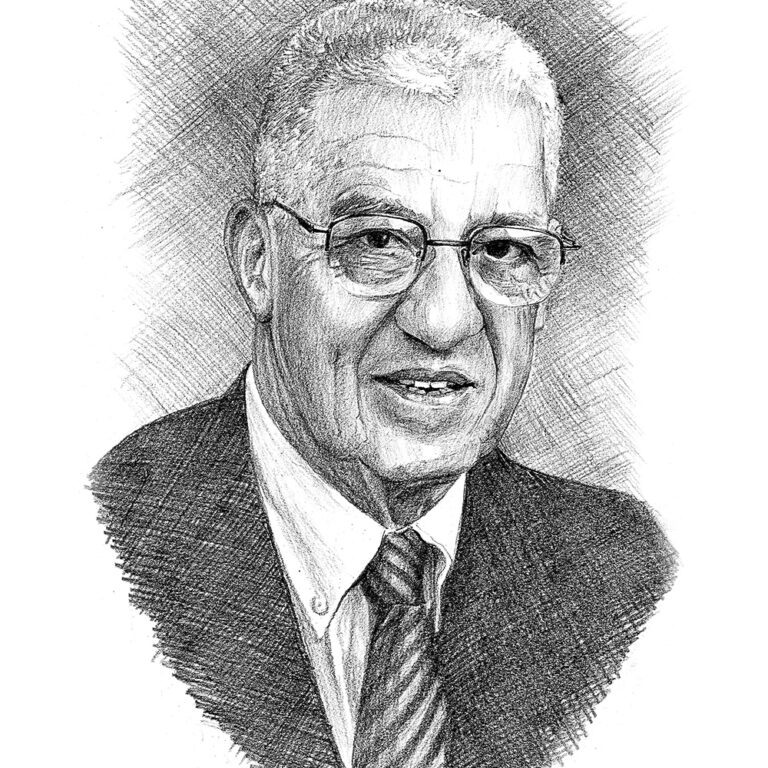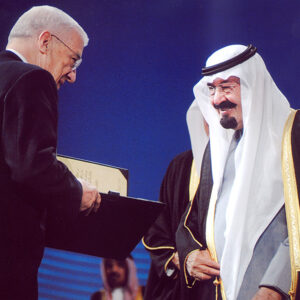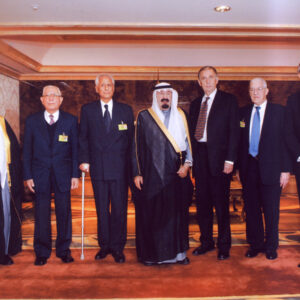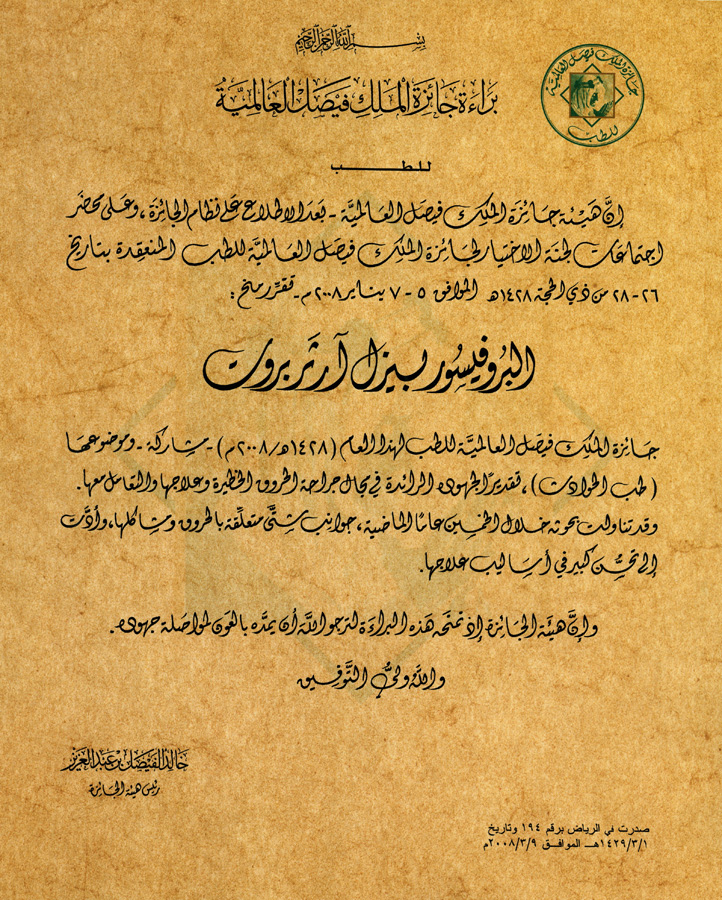

Professor Basil A. Pruitt Jr.
King Faisal Prize in Medicine 2008 Laureate
Topic: "Trauma Management "
The true revolution in burn patient management which occurred in the area of wound care is a prime example of the effectiveness of integrated research

Basil Pruitt Jr. pursued his undergraduate education at Harvard College in 1952 followed by his M.D. from Tufts University in 1957. After completing his internship at Boston City Hospital and residency at Boston and Brooks General Hospitals, he became a fellow of the American College of Surgeons in 1964. He served as an army surgeon for 35 years, including 27 years as leader of the Burn Center of the US Army Institute of Surgical Research in Southern Texas, developing it into one of the most developed burn centers in the world. In 1996, he joined the University of Texas and was a Clinical Professor of Surgery at Texas University Medical Center in San Antonio; he then joined the Uniformed Services University of the Health Sciences in Maryland, and served as a Consultant at the U.S. Army Institute of Surgical Research
Professor Pruitt organized and directed a multidisciplinary clinical and research program focused on burn care and trauma management, which resulted in improved resuscitation, ventilatory management, wound care and metabolic support regimens that significantly increased survival, reduced complications, accelerated convalescence, and improved functional recovery. He mentored a whole generation of burn center directors and surgeons from the US and overseas. He is a president and member of many professional societies. He published over 440 research papers, 13 books and monographs, 160 textbook chapters, and 200 conference abstracts.
Professor Pruitt received numerous national and international awards for his achievements, including: the American Surgical Medallion for Scientific Achievement in 1998, the American College of Critical Care Medicine Distinguished Investigator Award in 2000, the G. Whitaker International Burns Prize in 2000, the Roswell Park Medal in 2007, and the Society of University Surgeons Lifetime Achievement Award in 2007. He was president, former president or member of 40 surgical, medical and scientific societies, an Editor-in-Chief of the Journal of Trauma since 1995, member of the editorial boards of several other journals, and ad hoc reviewer for an additional 26 journals. He also served as a visiting professor, honorary lecturer and invited lecturer in more than 200 universities and medical centers worldwide.
This biography was written in the year the prize was awarded.
- He earned several awards and honors, including:
- First foreign honorary membership of the Japanese Association for Acute Medicine in 2011.
- Lifetime Achievement Award from the Association of Military Surgeons of the United States in 2015.
- Lifetime Achievement Award from Biomed SA in 2018.
- Professor Basil A. Pruitt Jr. passed away on 17/3/2019.



